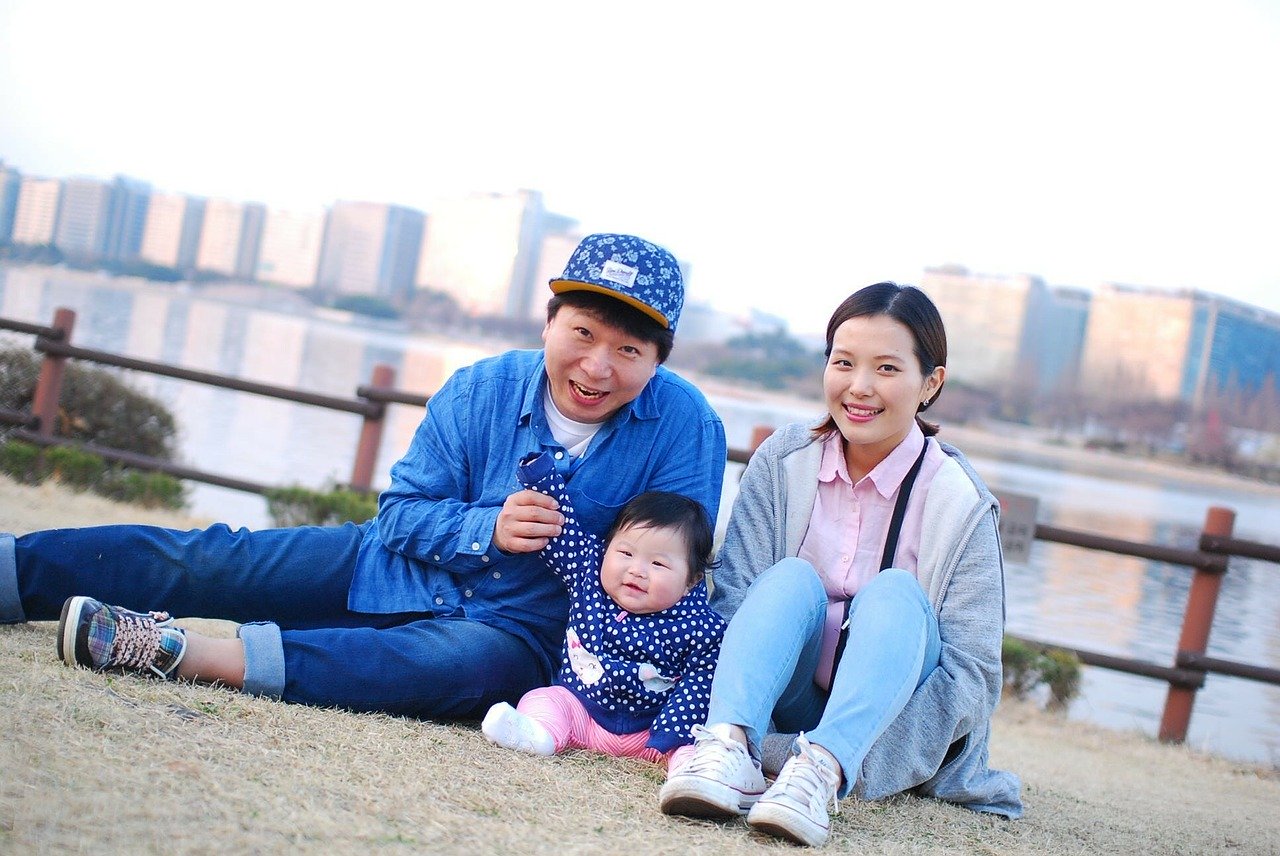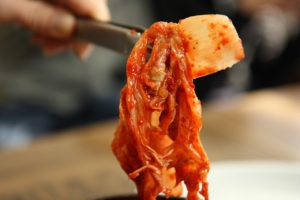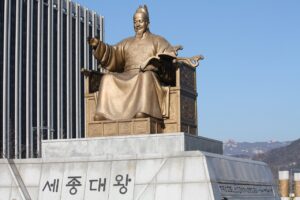Korean Family Terms: 가족 gajog
In this post, we’ll learn Korean family terms so that you can build your Korean vocabulary to talk about your가족 gajog family.
가족은 대가족이에요? gajog-eun daegajog-ieyo? Do you have a big family?
First, let’s build your Korean vocabulary by starting with some basic Korean family terms:: 엄마 / 어머니 eomma / eomeoni mom / mother; 아빠 / 아버지 appa / abeoji dad / father, 형 hyeong older brother, said by male; 오빠 oppa older brother, said by female; 남동생 namdongsaeng younger brother; 누나 nuna older sister, said by male; 언니 eonni older sister, said by female; 여동생 yeodongsaeng younger sister; 동생 dongsaeng younger sibling; 딸 ttal daughter; 아들 adeul son, 부모 (부모님) bumo (bumonim) parents (polite); 자녀 janyeo children.
- 나는 소가족이에요/ 대가족이에요.
na-neun sogajog-ieyo/ daegajog-ieyo.
I have a big/small family. - 우리 엄마는 의사입니다. 우리 아빠는 선생님입니다.
uli eomma-neun uisa-imnida. uli appaineun seonsaengnim-imnida.
My mother is a doctor. My father is a teacher.
- 형제나 자매가 있어요?
hyeongjena jamaega isseoyo?
Do you have brothers or sisters? - 언니와 남동생이 있어요.
eonniwa namdongsaeng-i isseoyo.
I have one older sister and one younger brother. (said by female speaker) - 누나와 남동생이 있어요.
nunawa namdongsaeng-i isseoyo.
I have one older sister and one younger brother. (said by male speaker) - 세명의 형제가 있어요.
se-myeong-e hyeongje-ga isseoyo.
I have three brothers. - 두명의 자매가 있어요.
du-myeong-e jamaega isseoyo.
I have two sisters. - 나는 외동입니다.
na-neun oedong-imnida.
I am an only child. - 자녀가 있어요?
janyeo-ga isseoyo?
Do you have any children? - 우리는 아들과 딸이 있어요.
uli-neun adeulgwa ttal-i isseoyo.
We have a son and a daughter. - 가족에서 누가 첫째예요?
gajog-eseo nuga cheosjjaeyeyo?
Who is the oldest child in your family? - 가족에서 누가 막내예요?
gajog-eseo nuga magnaeyeyo?
Who is the youngest child in your family?
이분은 저의 고모입니다. ibun-eun jeo-e gomo-imnida. This is my aunt.
Now let’s build your Korean vocabulary by looking at some extended Korean family terms:: 친척 chincheog relatives; 조부모님 jobumonim grandparents; 할머니 halmeoni grandmother; 할아버지 halabeoji grandfather; 손자 sonja grandson; 손녀 sonnyeo granddaughter; 고모, 이모, 숙모 gomo, imo, sugmo aunt (father’s sister, mother’s sister, uncle’s wife); 삼촌 samchon uncle; 사촌 sachon cousin; 여자 조카 yeoja joka niece; 남자 조카 namja joka nephew.
- 얼마나 자주 친척들을 만나요?
eolmana jaju chincheogdeul-eul mannayo?
How often do you see your relatives? - 조부모님은 어디 사세요?
jobumonim-eun eodi saseyo?
Where do you grandparents live? - 우리 할머니는 여전히 일하세요. 하지만 우리 할아버지는 은퇴하셨어요.
uli halmeoni-neun yeojeonhi ilhaseyo. hajiman uli hal-abeoji-neun euntoehasyeosseoyo.
My grandmother is still working, but my grandfather is retired. - 우리는 세명의 손주가 있어요. 손자 한 명과 손녀 두 명.
uli-neun semyeong-e sonju-ga isseoyo. sonja han myeong-gwa sonnyeo du myeong.
We have three grandchildren: one grandson and two granddaughters. - 우리 숙모와 삼촌은 우리집 근처에 산다.
uri sukmo-wa samchon-eun urijip geuncheo-e sanda.
My aunt and uncle live near our house. - 나는 사촌이 많아요.
na-neun sachon-i manayo.
I have a lot of cousins. - 내 조카가 대학을 시작했어요.
nae jokaga daehag-eul shijaghaesseoyo.
My niece just started university. - 나는 네 명의 조카가 있어요.
naneun ne myeong-e joka-ga is-eoyo.
I have four nephews.
Korean Vocabulary Related to Marriage
Now let’s learn some Korean vocabulary related to marriage. Some key vocabulary to know is: 아내, 부인 anae, bu-in wife; 남편 nampyeon husband; 결혼하다 gyeolhonhada to get married; 이혼하다 ihonhada to get divorced; 싱글/ 독신 shinggeul/ dogshin unmarried; 미혼 mihon unmarried. Let’s see some examples.
- 결혼했어요 아니며 미혼이에요?
gyeolhonhaesseoyo animyeo mihon-ieyo?
Are you married or single? - 남편은/아내는 직업이 무엇입니까?
nampyeon-eun/anae-neun jigeob-i mueoshimnikka?
What does your wife/husband do for a living? - 언제 결혼했어요?
eonje gyeolhonhaesseoyo?
When did you get married? - 우리는 결혼한지 20년 되었어요. 우리 결혼 기념일은 이번 주말이에요.
ulineun gyeolhonhanji ishib nyeon doeeoss-eoyo. uli gyeolhon ginyeom-il-eun ibeon jumal-ieyo.
We’ve been married for twenty years. Our wedding anniversary is this weekend. - 나의 아내는 임신했어요. 두 달 후에 아이가 태어날 거예요.
na-e anae-neun imshinhaesseoyo. du dal hu-e aiga taeeonal geoyeyo.
My wife is pregnant. We’re having a baby in two months. - 우리 부모님은 이혼하셨다.
uli bumonim-eun ihonhasyeotda.
My parents are divorced.
우리는 아기가 있어요. Uli-neun agi-ga isseoyo. We have a baby.
Now let’s look at some vocabulary related to family: 남자친구 namjachingu boyfriend; 여자친구 yeojachingu girlfriend; 아이/ 아기 ai, agi baby; 임신 imshin pregnant; 입양하다 ibyanghada to adopt; 태어나다 taeeonada to be born; 죽다 (돌아가시다) jugda (dolagashida) dead (deceased, more polite); 살아있는 salaitneun alive; 새아빠 sae-appa stepfather; 새엄마sae-eomma stepmother; 의붓아들 uibut-adeul stepson; 의붓딸 uibut-ttal stepdaughter.
- 남자친구/여자친구 이름이 뭐예요?
namjachingu/ yeojachingu ireum-i mwoyeyo?
What is your boyfriend’s/ girlfriend’s name? - 우리는 아이를 입양할 것이다.
uli-neun ai-leul ibyanghal geoshida.
We’re going to adopt a child. - 나는 입양되었다.
na-neun ib-yangdoeeotda.
I was adopted. - 아들은/딸은 언제 태어났어요?
adeul-eun/ttal-eun eonje taeeonasseoyo?
When was your son/ daughter born? - 우리 할머니는 살아 계시지만, 할아버지는 돌아가셨다.
uli halmeoni-neun sal-a gyesijiman, hal-abeojineun dol-agasyeotda.
My grandmother is alive, but my grandfather is dead. - 새엄마를/의붓아빠를 좋아해요.
sae-eomma-leul/uibut-appa-leul jo-ahaeyo.
I like my stepmother/stepfather. - 나의 의붓딸은/의붓아들은 우리와 함께 산다.
naui uibut-ttal-eun/ uibut-adeul-eun uli-wa hamkke sanda.
My stepdaughter/ stepson lives with us. - 우리 가족은 개와 고양이가 있어요.
uli gajog-eun gae-wa goyangi-ga isseoyo.
My family has a dog and a cat.
Learn Korean with the Language Garage
We hope you’ve enjoyed growing your Korean vocabulary by learning some Korean family terms. If you’re interested in learning more, check out our other posts on Korean language, culture, and more. And if you’re looking for convenient and affordable live Korean lessons with a real teacher, check out The Language Garage. Our lessons are given online in a virtual classroom, so it doesn’t matter where you live or work – we can come to you. And we have flexible options, with a free trial so that you can decide if there’s a fit. Check us out!
Image: kim881231 on Pixabay






